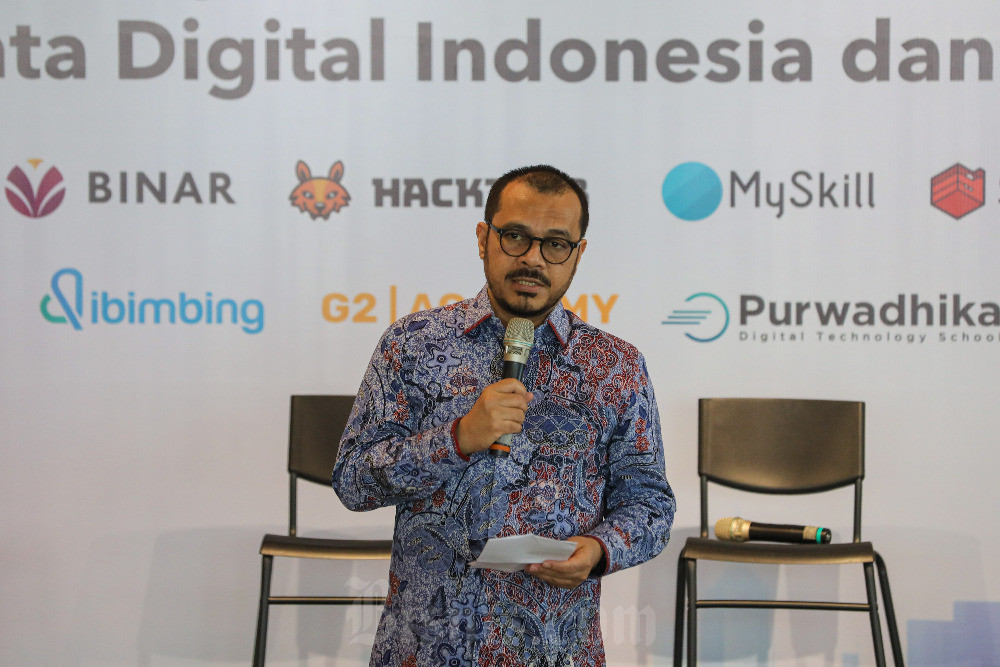Indonesia is experiencing a severe shortage of digital professionals, with the gap in skilled workers reaching an alarming 27 million. This shortfall, particularly evident in artificial intelligence (AI) expertise, poses a significant challenge to the country’s ambitions of becoming a major digital economy in Southeast Asia. To address this, the Ministry of Communication and Information Technology (Kominfo) has launched initiatives, including an AI Talent Factory, aimed at accelerating workforce development and closing the Indonesia AI talent gap.
The Growing Challenge of Indonesia’s Digital Skills Shortage
Indonesia’s economy is undergoing rapid digital transformation, driven by widespread adoption of e-commerce, fintech, healthtech, and smart city initiatives. However, this growth has exposed a critical issue: a shortage of qualified professionals capable of developing and managing advanced digital technologies, especially artificial intelligence. According to official estimates, the country is facing a deficit of 27 million digital talents, with AI-related skills representing one of the most significant gaps.
This Indonesia AI talent gap has multiple implications. First, it slows down the country’s ability to innovate and adopt emerging technologies. Second, it forces companies to rely on foreign talent or outsource digital services, leading to higher costs and potential security concerns. Third, it limits the country’s global competitiveness, as nations with strong AI workforces are increasingly dominating global tech markets.
Industry experts believe that without urgent intervention, Indonesia could miss out on the full potential of AI-driven economic growth. As artificial intelligence continues to revolutionize industries from manufacturing to healthcare, the need for a robust domestic workforce capable of designing, implementing, and maintaining AI systems is becoming more critical than ever.
AI Talent Factory: A Strategic Solution
To tackle the Indonesia AI talent gap, the government is focusing on long-term talent development through initiatives such as the AI Talent Factory. This program aims to provide intensive training for students, fresh graduates, and professionals, equipping them with practical AI skills that meet industry demands. The goal is not only to produce AI engineers and data scientists but also to create a pipeline of skilled professionals who can contribute to various sectors relying on AI.
The AI Talent Factory emphasizes collaboration between the government, private sector, and academic institutions. By leveraging expertise from global tech companies and local universities, the program seeks to deliver world-class training tailored to Indonesia’s unique economic context. This collaborative approach ensures that participants gain both theoretical knowledge and hands-on experience in AI applications such as machine learning, natural language processing, computer vision, and robotics.
Moreover, the AI Talent Factory is aligned with Indonesia’s broader digital roadmap, which prioritizes innovation, inclusivity, and sustainability. The program aims to train thousands of participants annually, gradually reducing the skills gap while creating high-value job opportunities across the country.
Economic Implications of Closing the Talent Gap
Bridging the Indonesia AI talent gap could have profound economic benefits. According to studies by international consulting firms, countries that successfully integrate AI into their economies could see GDP growth of up to 14% over the next decade. For Indonesia, which aspires to be one of the top five global economies by 2045, developing an AI-skilled workforce is critical.
Closing the Indonesia AI talent gap would enable local companies to build in-house AI capabilities, reducing dependence on external vendors. This could lower costs, increase efficiency, and enhance data security, particularly in sensitive industries like finance, healthcare, and defense. Additionally, fostering local AI innovation could lead to new startups and technological breakthroughs, further strengthening Indonesia’s position in the regional tech ecosystem.
From a labor market perspective, addressing the Indonesia AI talent gap will open up high-paying, future-proof careers for young professionals. The AI Talent Factory program specifically targets fresh graduates and early-career professionals, ensuring that the workforce is ready for emerging job roles such as AI engineers, data analysts, and automation specialists. This initiative aligns with global labor market trends, where demand for AI expertise is growing exponentially.
Challenges and Future Outlook
While the AI Talent Factory is an important step, challenges remain in addressing the Indonesia AI talent gap. One key obstacle is the quality of education in STEM (science, technology, engineering, and mathematics) fields, which needs significant improvement to produce graduates capable of handling complex AI technologies. Another challenge is retaining skilled workers, as many professionals trained in AI may seek higher-paying opportunities abroad.
To mitigate these challenges, Indonesia must adopt a holistic approach. In addition to technical training, policies should focus on improving STEM education, promoting research and development, and creating incentives to retain talent within the country. Strengthening collaboration with international partners and private companies will also be crucial, ensuring that training programs remain relevant to global industry needs.
Despite these hurdles, the outlook is positive. The AI Talent Factory and similar initiatives demonstrate the government’s commitment to solving the Indonesia AI talent gap. As more young professionals gain access to advanced training and real-world experience, the country will be better equipped to compete in the global digital economy.
Conclusion
Indonesia’s 27 million digital talent deficit represents both a challenge and an opportunity. While the shortage poses immediate risks to innovation and competitiveness, it also highlights the vast potential for workforce development and economic growth. By investing in initiatives like the AI Talent Factory, Indonesia is taking a decisive step toward closing the AI skills gap and positioning itself as a leader in digital transformation.
The success of these efforts will depend on sustained collaboration between government, academia, and industry. If implemented effectively, the AI Talent Factory could serve as a model for other countries facing similar challenges, proving that strategic talent development is key to thriving in the AI-driven future.
Read More






 Monday, 09-02-26
Monday, 09-02-26







